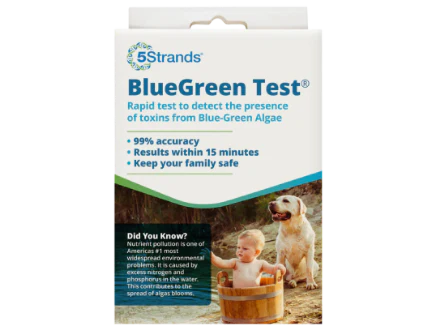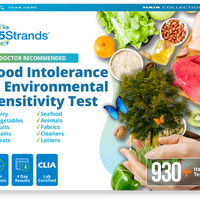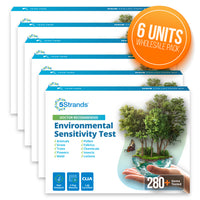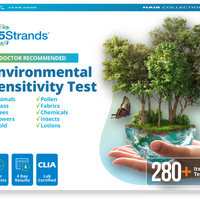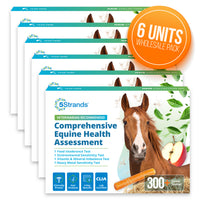Spring is in full bloom (no pun intended) and pollen counts are high. There are so many different environmental triggers out there that symptoms can present themselves at any time. While it is impossible to eliminate or avoid environmental allergens altogether, you can help reduce the symptoms you might be experiencing by following some simple and natural steps.
While there is no one size fits all, many home remedies can help you fight your allergies and feel better. The following are some home remedies that may help to alleviate your symptoms.
Use a Nasal Spray/Nasal Irrigation

For those of us that do not want to use medication every day, nasal sprays, nasal irrigation, or nasal rinses are a great alternative. Nasal sprays will deliver a stream of medication directly into the nasal passages to help reduce inflammation and relieve your symptoms quickly. They have less side effects than medication and are better for long term use.
Nasal irrigation is an easy at home therapy using saltwater that can be great for individuals who suffer from allergies and have respiratory distress. Nasal irrigation is safe to do regularly or even several times per day to alleviate congestion-related symptoms. Another tool you can use is a neti pot. This is a small tea pot looking container. You fill the saline solution inside of it and then pour the solution in one nostril and let the solution flow out through the other.
Stay Indoors On High Pollen Days
Taking precautions can help reduce any symptoms you might experience when the pollen counts are high. Staying indoors and avoiding direct exposure can be helpful. Keep your doors and windows closed and even cover the bottom openings with a cloth or towel. This will help act as an additional barrier to keep the pollen out. Avoid doing any yard work such as mowing the lawn or gardening. If you do have to go outside, make sure you change your clothes when you come in and even take a shower. It will eliminate any direct contact on your skin.
Use Essential Oils
Essential oils can be very helpful in fighting against allergy symptoms. They are all natural and can be used in a diffuser, rubbed on the skin, added to your bath, or directly inhaled. Some have anti-inflammatory properties such as: eucalyptus, peppermint. These can help reduce any congestion and swelling. Lemon and Lavender will help boost the immune system. Some oils have antibacterial properties such as: tea tree oil and rosemary. Other oils that have helped symptoms are Thyme oil, Bergamot Oil, Cedarwood Oil, Pine Needle Oil, Cypress Oil, and Lemongrass.
Run Your Air Conditioner and Get a Dehumidifier
Air conditioning systems work by taking the humidity out of the air. This can help reduce your allergy triggers. Your doors and windows need to remain shut to keep the pollen from re-entering the rooms. Change the filters often!
Dehumidifiers also work by removing excess moisture from the air along with any dust, pollen, and mold spores that may have entered your home. Along with removing the excess moisture, it will help reduce any of those musty odors from mold and mildew.
Drink Tea

There are several reasons why tea can be helpful in reducing allergy symptoms. First, it is good for hydration which is needed to keep the body functioning properly. It also contains antioxidants which reduce inflammation. Green Tea and Ginger Tea have been used worldwide to help thin out mucus which helps reduce congestion and stuffiness. In addition, teas contain flavonoids which have been shown to have anti-allergy properties. Flavonoids can help reduce the amount of histamine released when you are having an allergic reaction. Too much caffeine can also trigger histamine production so if you notice you start sneezing, you might want to cut back on consumption of anything with caffeine.
Drink Plenty of Water
Once your body is dehydrated, the histamine production increases, which causes the body to have the same trigger symptoms as seasonal allergies. Dehydration can cause your mucus membranes to swell, which in turn causes nasal congestion and other symptoms. Drinking plenty of water will help prevent the higher histamine production and alleviate the allergy symptoms. Water helps flush out your system and keeps it hydrated at a cellular level, making sure that your body doesn’t retain any unnecessary allergens.
Try Acupuncture
Though results are mixed, quantifiable evidence suggests acupuncture as a viable solution to allergy relief as a means to reduce the need to take allergy medication. As acupuncture seeks to improve immunity through circulation of the body’s energy, treatment for allergies are focused at the front of the body. By stimulating the defensive qi in this area, your body can naturally improve immunity and work to lessen the onset of allergic reactions. This method may come as a surprise, but if you are looking for relief that does not include over the counter medications, give it a try!
Exercise
Exercising can assist with allergic reactions, including respiratory allergies (related to breathing), although it’s unclear why. Exercise in moderation isn’t harmful to people who have allergies, and it has a variety of health advantages. Physical activity results in a strong blood flow. This allows allergens to be moved quickly through the body and eliminated via the kidneys and skin. Exercise doesn’t have to be intense or challenging. Simple movements get blood pumping and rid you of pesky allergens. You shouldn’t overexert yourself, especially during your peak allergy season. The American College of Allergy, Asthma & Immunology emphasizes overdoing physical activity could exacerbate symptoms rather than help. Focus on exercises that promote proper breathing. Yoga and Pilates, which concentrate on deep breathing, are helpful. Perform workouts that strengthen your heart and lungs. Resistance training and stop-and-go forms of exercise are preferred, especially if you suffer from asthma. Long-duration runs and cycling may trigger symptoms, especially if excessive cardio initiates shortness of breath.
Take Vitamin D
Research is beginning to support the idea that vitamin D can protect against food allergies and is important for overall good health. Vitamin D has immunomodulatory capabilities by regulating immune system cells and the production of chemicals that may trigger allergy symptoms. It has the ability to fight off infections and reduce inflammation.
The best way to ensure that you are getting enough vitamin D is a combination of sun exposure and consuming foods rich in vitamin D. You should only consider supplementation of this vitamin when advised by your healthcare professional. There is a simple blood test that can be done to assess the levels or you can do an energetic test through 5Strands.
Omega 3 Fatty Acids
Omega-3 fatty acids, docosahexaenoic acid (DHA) and eicosapentaenoic acid (EPA), are found naturally in fish oil and are commonly thought to be anti-inflammatory nutrients, with protective effects in inflammatory diseases. If you are not a fan of fish, then look to eat walnuts, vegetable oil, flax seed, leafy greens, hemp oil, and algae.
Butterbur
Butterbur (Petasites hybridus) is a shrub. Butterbur grows throughout Europe and parts of Asia. It's also now found in parts of the US. Butterbur is an herbal supplement used for pain, upset stomach, stomach ulcers, migraine and other headaches, ongoing cough, chills, anxiety, plague, fever, trouble sleeping (insomnia), whooping cough, asthma, hay fever (allergic rhinitis), and for irritable bladder and urinary tract spasms. It is available in extract or pill form.
Probiotics
Probiotics are live microorganisms (usually bacteria) that are similar to those found naturally in the gut. One of the best ways to reduce allergy symptoms is by adding probiotics like lactobacillus acidophilus (LactoSpore) into your diet on a regular basis. Studies show that this type of bacteria helps prevent allergic responses in humans because it helps protect our bodies from foreign invaders. Don’t expect immediate results. These types of bacteria typically take several months before their full effects manifest themselves in your body.
Quercetin
Quercetin prevents immune cells from releasing histamines, which are chemicals that cause allergic reactions. As a result, researchers think that quercetin may help reduce symptoms of allergies, including runny nose, watery eyes, hives, and swelling of the face and lips. Quercetin is one of the most widespread of the flavanols, and can be found in many different types of foods. Fennel, red onion, sweet potato, and kale are all good sources, as well as fruits like blueberries and cranberries, and herbs like dill and cilantro. Quercetin can even be found in black tea and red wine!
Eat Foods With Vitamin C
One of the simplest ways to help reduce your allergy symptoms is by eating more Vitamin C. A potent antioxidant, vitamin C protects your cells from damage, reduces the severity of allergic reactions and helps your body to fight infections. When taken during allergy season, vitamin C can slow down the overreaction of your body to environmental triggers by decreasing your body's histamine production. Just a few foods that contain high levels of Vitamin C are oranges, grapefruits, strawberries, broccoli, chili peppers, yellow peppers, kiwis, kale, parsley, and thyme.
Eat Honey

Some of honey's helpful qualities have been explored in scientific studies. For example: Bee products like honey may help with wound healing, boost your immune system, act as a cough suppressant, and reduces inflammation. That can be helpful if you have allergies because your immune system defends your body against bacteria, viruses, pollutants, dust mites, and other microorganisms that can trigger allergy symptoms.
Get Enough Sleep
Sleep helps restore the body and strengthens the immune system. If you are only sleeping just a few hours each night, it can have serious side effects on your immune system and overall health. Studies show that people who don’t get enough sleep suffer from higher stress levels, which we already know is bad news for anyone with allergies. Many also find it challenging to manage their diet and exercise routines (or lack thereof!) when they’re not getting the right amount of shut-eye at night.
Shower or Bath Daily
Taking a shower or bath every day is a great way to wash away dirt and bacteria and any other allergens that collect on your skin throughout each day. The steam from the hot shower will also help to open up your nasal passages from any congestion.
Quit Smoking
Smoking can have negative side effects on just about every organ in our bodies, including causing nasal congestion. If you couldn’t tell already, this causes problems for people who suffer from allergies because mucus membranes get inflamed when exposed to secondhand smoke over an extended period.
Overall, there are many natural ways that you can try to relieve your allergy symptoms. However, be sure to talk to your doctor before taking any supplements, as some may interact with medications you’re already taking.
In addition, it would be best to avoid self-diagnosing and self-treating, as some allergies can be severe and even life-threatening. If you’re unsure whether you have allergies or if your symptoms are severe, see an allergist for proper diagnosis and treatment.
When it comes to intolerances, since they are not life threatening and can be a bit harder to determine, you can try the 5Strands Environmental Test Kit.

The 5Strands Environment Intolerance Test is a Functional Health Assessment that helps you take the first steps on your wellness journey. This complete assessment compares your body’s resonance to common environmental items, including pollen, plants and grasses, animal dander, natural and synthetic fabrics, and cleaning solutions. This assessment accurately measures incompatibilities that can lead to the development of sensitivities or more serious reactions that may need medical interventions.



